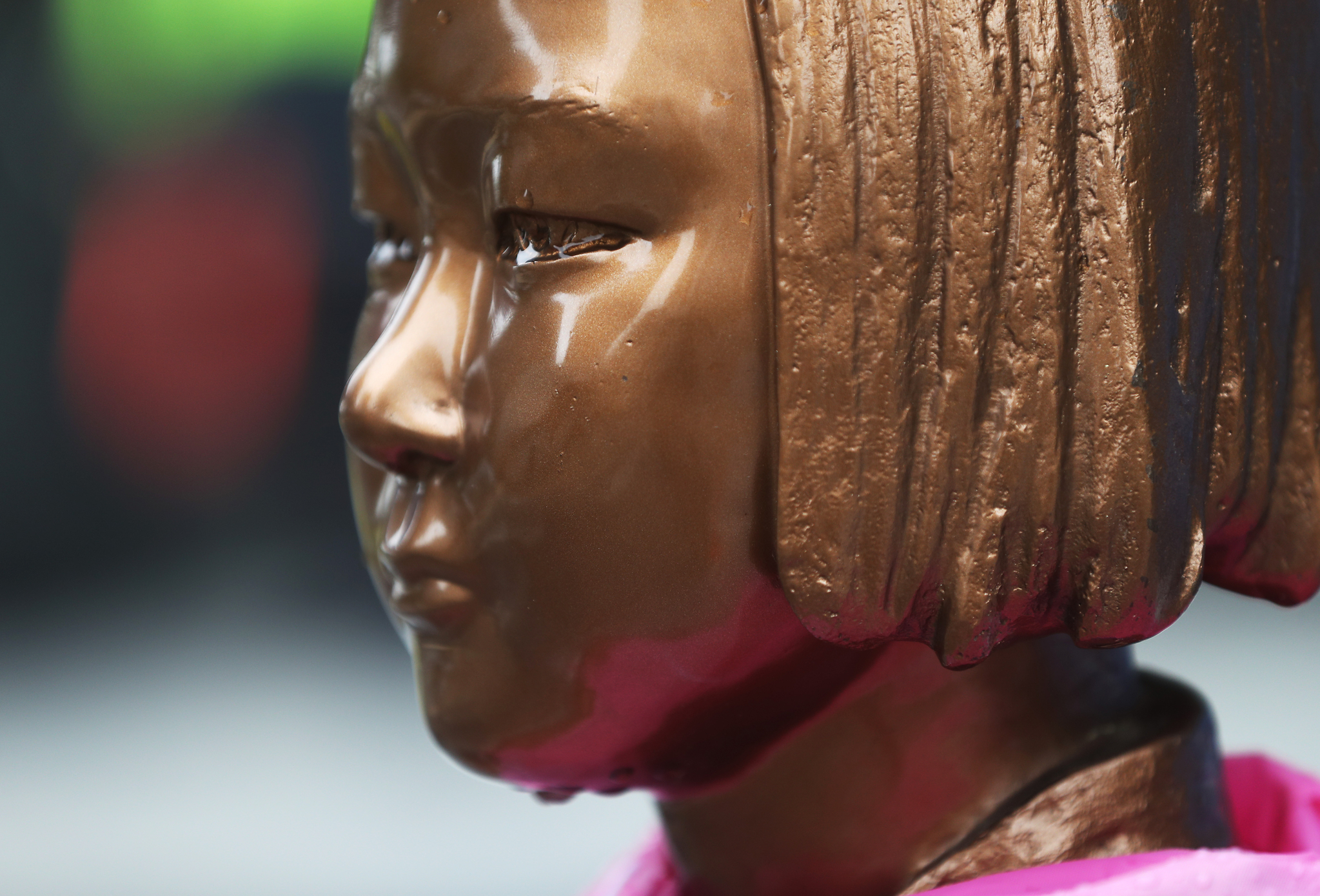
The Peace Girl Statue in front of the Japanese Embassy in Seoul, Jongno-gu. yunhap news
Japanese military comfort women victims filed a lawsuit against the Japanese government for damages and won the first trial. This is a court decision that came five years after the case was handed over to a formal trial in 2016 due to the Japanese refusal to pay alimony.
The 34th Division of the Civil Agreement of the Seoul Central District Court (Director Jeong-Gon Kim) won the plaintiff on the 8th, saying, “Pay 100 million won per person to the plaintiffs” in a lawsuit filed against the Japanese government by 12 victims of comfort women, including the late grandmother Bae Chun-hee. Ruled as.
First of all, the judge said, “It is difficult to see that the act in this case is legal, and it is a deliberate and systematic anti-humane act that violates international enforcement norms.” “Unless there are special restrictions, the’state immunity’ does not apply.”
In addition, “when the various data and the purpose of the defense are combined, the defendant’s illegal behavior is recognized, and the plaintiffs seem to have suffered extreme mental and physical pain that is difficult to imagine.” “I did not receive an international apology from the defendant, and the alimony was requested by the plaintiff. It is reasonable to see it as more than KRW billion.”
In addition, “the defendant did not make a direct claim in this case, but if you look at the Korea-Japan Claims Agreement in 1965 or the 2015 (Korea-Japan Comfort Women) Agreement, it is difficult to say that the right to claim damages in this case was included.” Judged.
Earlier, Grandma Bae and others filed a mediation application in August 2013 claiming 100 million won each for alimony, claiming that the Japanese government deceived them or forcibly borrowed them as comfort women during the Japanese occupation. However, the Japanese side refused to serve by the Korean court, so no mediation was made, and at the request of the plaintiffs, the case was handed over to a formal trial in January 2016.
Japan has not responded to trials under the principle of sovereign immunity under international law that one country cannot be legally liable according to the jurisdiction of another country.
Reporter Eunbin Kim [email protected]
